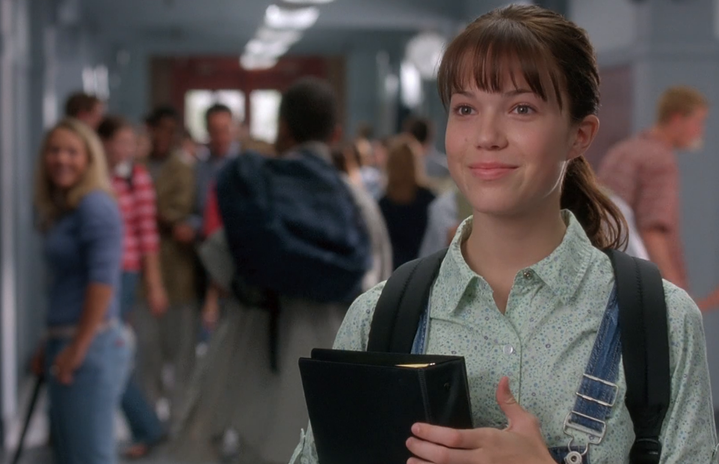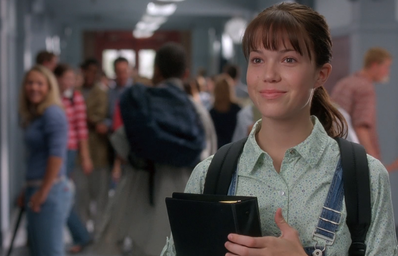The evolution of the nice Girl and the independent Woman and how Season 2 Put it all in jeapordy
{WARNING: Spoilers for Season 1 and 2 of Ted Lasso}
If nothing else, at least one good thing will happen in 2022: “Ted Lasso” began production for Season 3.
“Ted Lasso” won hearts everywhere when it debuted in 2022, offering a much-needed dose of laughter and optimism to a world still ravaged by COVID. With eleven Emmy nominations, Ted Lasso broke records as the most nominated Freshmen Comedy in history and it walked away with four wins, including best comedy series.
One of the best things about “Ted Lasso” is the way it challenges long-running and popular TV tropes without egregious, self-righteousness but instead with a subtle firmness that really only hits you after you’ve finished the show. Instead of following largely mediocre, if not outright terrible people whose shallowness and ridiculous selfishness often serve as the punchline of the jokes, Ted Lasso works to defy our expectations by giving us genuinely good people to root for. One of the characters who most successfully embodies this subversion of expectations and as a new type of role woman is Juno Temple’s, Keeley Jones.
Redefining women onscreen
Keeley rejects several long-beloved tropes for women on screen. She’s a blend of feminine tropes while simultaneously being a rebellion against them, to the point that she’s impossible to distinctly categorize because she dips into several tropes without being defied by anyone.
For instance, she’s a rather successful model, beautiful and rich, but she never lords her privilege over the other characters, as many Mean Girl characters before her might have. She’s kind and supportive of those she loves, but she’s not a meek damsel in distress like Jamie in “A Walk to Remember” either. When Roy mocks Jamie and Keeley’s relationship in season 1, Keeley comes back with snappy retorts that point out Roy’s own relationship issues and challenge him, sarcastically, to try and have more input in her life. Her sort-of Good Girl nature doesn’t keep her from being ambitious or sexual either, as it, unfortunately, has for so many Good Girls in the past. Keeley’s a reforming presence for men (and arguably women like Rebecca) in her life, but it’s never her function in the story.
When the audience first meets Keeley she is dating Jamie, the arrogant but talented star player for AFC Richmond. Their pairing makes for the classic Good Girl/Bad Boy trope. But by the fourth episode, Keeley is disillusioned with her relationship with him and breaks up with Jamie. Ending things with Jamie allows Keeley and Roy’s relationship to begin to blossom. Finally, however, when Roy seems to be non-committal about a relationship with Keeley she sleeps with Jamie again, something that would’ve blown up in her face if this were any other comedy series. Instead, while Roy does have a little freakout, he eventually comes back to tell Keeley that he’s over it. Keeley admittedly turns the conversation into a mock press conference for her imaginary magazine, “The Independent Woman.”
In this scene, which I believe to be one of the most endearing in Keeley and Roy’s relationship, Keeley literally declares herself the independent woman. She doesn’t need Roy to be successful or happy and her role as Rebecca’s best friend and as the Marketing Manager for Manchester United means her relevance to the show remains intact even without Roy. She’s choosing to go out with him because she wants to and because his presence enriches her life. For once, the independent woman doesn’t have to be alone to be a strong woman, she can be happily in love too. She’s still the independent woman, even when she’s in love.
The Golden Couple
In this and so many other ways, Roy and Keeley are breaking that mold. Both Keeley and Roy have separate, fulfilling lives outside of each other. They’re two hugely passionate people successfully chasing their separate ambitions while openly and fiercely supporting each other. Their healthy, open conversations, and ability to communicate everything they need to say with each other have made them one of TV’s most aspirational couples. After decades of will-they won’t-they-couples being ultimately horrible for each other and extreme misunderstandings becoming relationship-ending fights due to lack of communication or respect (looking at you, “Friends”) Keeley and Roy are a breath of fresh air.
At the end of Season 2, Keeley and Roy’s relationship is on the rocks when Keeley, on the verge of launching her independent marketing consulting firm refuses a six-week vacation with Roy, telling him to go without her. The conversation is ladened with the potential for conflict and Roy even asks Keeley if she’s breaking up with him, which she denies. The decision throws the relationship into question. In the background, the specters of Women Tropes past begin to gather. It seems like the new conflict the writers are building will once again be that of the false choice between a woman’s success and her love. I personally don’t need to see another woman fight to justify the pursuit of her passions on screen.
The catch-22 of being an independent woman
One of the longest-running messages in modern pop culture is that there is no work-life balance for ambitious and successful women. Don’t believe me? Watch “How to Lose I Guy in Ten Days” again. She gives up an opportunity to write about her passions (politics etc.) because a guy who openly manipulated her intercepts her to say that he loves her. Even films with feminist intentions like “Mona Lisa Smile” depict the work-life balance as an either-or choice. It’s one of my favorite films with undeniably feminist philosophies underpinning it, but by the end of the film, all the characters still have chosen either love or their career. Independent women in films are pictured as not needing a man to be successful and love is treated more as a distraction to the woman’s ultimate triumphant success.
If it isn’t about a woman’s choice between either her career or her relationship, then she’s punished for trying to have both. Think of Anne Hathaway’s character, Jules, in “The Intern”. Jules is a mega-successful entrepreneur whose husband (spoilers) cheats on her because he can’t handle the “emasculating” task of being a stay-at-home dad. And yet, by the end of the movie, she takes him back. Why? No one could really say. Her husband’s infidelity is the punishment for her success, something she accepts. She almost gives up because her company is trying to ‘save’ her family (even though she wasn’t the one to break it in the first place).
Now, in a surprisingly predictable move, “Ted Lasso” is in danger of following a similar mold, and once again a central romantic relationship is in jeopardy and it is because of a woman and her career. Once again, stories are signaling that women really can’t have it all, no matter how good a person they may be. But what if women don’t want it all? What if, insanely, we want to be loved by people who are excited to celebrate our passions? Why does no one ask if men can have both careers and loving families? Why is it such a big ask for women in a way it is not for men? Maybe, just like everyone else, we want to be able to have fulfilling professional lives and loving partners. It shouldn’t be so much to ask to see it on screen.


